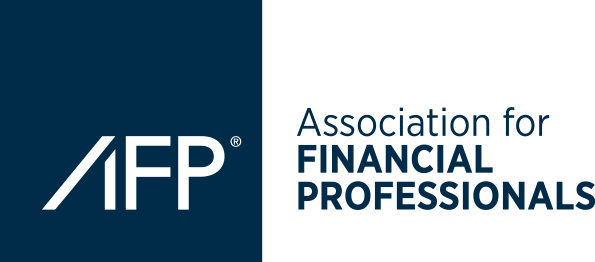Articles
The Skills Revolution in Finance: Why CFO Organizations Are Abandoning Traditional Career Ladders
- By Margaret Rodgers, Executive Director, Finance Development & Training Institute
- Published: 7/14/2025

As Executive Director of the Finance Development & Transformation Institute, I've had the privilege of working closely with our member companies as they navigate one of the most significant shifts in talent development we've seen in decades. The traditional career ladder — with its predictable progression through predefined roles — is rapidly giving way to dynamic, skills-focused frameworks that better serve both individual aspirations and organizational needs.
This transformation isn't just changing how finance professionals build careers; it's fundamentally reshaping how CFO organizations attract, develop and retain talent in an increasingly complex business environment.
Understanding the New Paradigm
Skills-based career development focuses on building and refining specific competencies that can be applied across various roles. It emphasizes continuous learning, upskilling and adaptability, allowing professionals to pivot into different career paths based on their capabilities rather than predefined job titles. For example, a person in role XXX might have skills YYY that make them successful in role ZZZ, but would not have considered that in a role-based progression.
Role-based career development, by contrast, follows traditional hierarchical structures where employees progress within specific roles or departments, with limited cross-functional mobility. A person might have to wait for their boss to be promoted, or for the business to grow and add new headcount, before they can be promoted.
As one of our member companies explained, "Since similar skills can be acquired in multiple roles, associates feel more control over their career path and can choose roles that may be better aligned with their personal interests and proclivities."
What's Driving the Change
The business case for skills-based development is compelling.
The World Economic Forum’s Future of Jobs Report indicates that 40% of core skills are expected to change within the next five years, while 50% of employees will require reskilling by 2025. A skill-based approach helps companies and staff move to new roles more fluidly, filling gaps as they emerge and opening growth opportunities. Perhaps most importantly, organizations implementing skills-based approaches experience 2.9x higher engagement from employees who see opportunities to learn and grow.
Through our work with FDTI member organizations, we've identified several key factors accelerating this shift. Companies are facing mounting internal and external pressures. As one member organization explained, skills "heavily impact organizational outcomes" and provide "a means to infuse talent processes with a data-driven approach, becoming more agile to achieve ambition and drive business success."
The technology imperative is also reshaping skill requirements. Where finance teams once focused primarily on traditional accounting or finance competencies, they now need capabilities spanning from customer analysis and demand planning to Python programming and cyber threat intelligence. At one of our member companies, teams now receive foundational training complemented by AI courses, recognizing that "skills under the competencies can change, but the training is continuously modified to allow all team members to develop and expand career choices."
The Impact: What Changes When You Make the Shift
Enhanced Talent Retention
The impact on talent retention has been particularly significant. With post-pandemic reluctance to relocate, skills-based development has become crucial. "Skills-based career development allows us to retain more associates because they can progress in their career without relocating for a specific role, as there are often multiple roles that satisfy the development of a key skill within their current site."
This flexibility creates a "snowball effect" — professionals acquire skills more easily, and those skills open possibilities for multiple roles that contribute new competencies. The old model required specific, sequential roles, sometimes for years at a time, before qualifying for advancement.
Skills-Based Development Delivers
Member organizations report significant organizational benefits from this transformation:
- Improved employee engagement and career growth through clearer development pathways
- Ability to rapidly deploy talent to meet critical and evolving business needs
- Increased transparency of the skills available within the organization and what's needed
- Transformed talent practices based more on skills than job titles
- Focused learning and development opportunities aligned with actual capability gaps
The impact on the individual employee is equally important. Skills-based approaches provide improved career navigation through AI-powered recommendations, clearer job expectations, skills-infused development, including mentoring and personalized learning, and actionable employee development plans based on skills needed for current and future roles.
Implementation Strategies from the Field
Building Skills Frameworks
FDTI member companies have taken varied but effective approaches to defining skills frameworks. The most successful define skills as "specific, practical, and measurable abilities, knowledge, and expertise that individuals possess and apply to their role."
Some organizations have created comprehensive enterprise competency categories comprised of hundreds of job-specific skills. Others have used external market data to identify critical skills for job profiles, organizing roles into clusters and having senior leaders validate both the skills and job alignments. The key is creating flexible frameworks that are comprehensive yet practical.
The key principle, as articulated by one member organization, is that "skills are the thread of your career" — connecting individual growth to job advancement, career development and ultimately organizational success.
Technology Integration
Many member organizations have integrated skills frameworks with existing HR systems, creating virtual career centers where employees can search by skill and discover opportunities they might never have considered. As one company described, this provides "more visibility and accessibility to everyone [...] to learn about functions they had never heard of before, identify mentors — networking options."
The technology enables AI-like functionality, allowing employees to add their own skills, identify individual skill gaps and search for development opportunities across the organization. Employees know what skills they need and what skills they will acquire in any given position.
Managing the Human Element
While technology enables skills-based development, the human element remains crucial. As one member company emphasized, "It's all about discussion — critical skills for the individual and the role." The framework supports but doesn't replace meaningful career conversations between managers and employees.
Best Practices for Implementation
Based on the CFO organization's experiences, several critical success factors emerge:
Start Simple: As one member company advised, "Keep it simple." Perfect shouldn't be the enemy of good when implementing skills frameworks. Organizations should begin with core competencies and evolve based on experience.
Create Common Language: All successful implementations establish shared vocabulary around skills and competencies. This facilitates better conversations between employees and managers and enables more effective talent mobility.
Link to Development: Ensure skills identification translates into concrete development opportunities. Member companies connect frameworks to training programs, workshops, and "power hours" for quick learning with new tools.
Focus on Conversations: While frameworks provide structure, career development remains fundamentally about meaningful discussions between individuals and their managers about capabilities, aspirations and opportunities.
Overcoming Common Challenges
The Checklist Mentality
Member organizations consistently report that employees naturally seek prescriptive career paths even in skills-based systems. As one explained, "Associates are still looking for a checklist — what specific skills do I need to get promoted?" Clear communication about how career progression actually works within the new framework is essential.
Keeping Skills Current
Skills frameworks must evolve with business needs. As one member noted, "Skills by job profiles? What are skills for finance? Different answers at any time." Organizations must build processes for regularly reviewing and updating competency models.
Balancing Breadth and Depth
The shift raises questions about specialization versus generalization. Some member companies encourage even specialists to gain broader experience, believing "most skills can be taught," while others tailor approaches based on specific business needs.
Evolving the Role of the Manager
Finance manager roles also need to evolve, as they must now assemble a team with a diverse set of skills, rather than employees who have progressed through specific roles. Managers must focus on outcomes more than processes and trust that employees with the right skills will succeed.
The Future of Skills-Driven Finance Careers
Looking ahead, FDTI member companies anticipate continued evolution of required capabilities. Finance must "evolve with the world, upskilled in new technology." While technical skills have always been important, the focus is shifting to advanced analytics, data science and emerging technologies.
Member organizations see their competency frameworks as "dynamic, not static" and expect them to continue evolving. The goal, as one company described, is for "associates to feel a greater sense of ownership and control over their careers, able to progress in ways that are more aligned with their interests."
This enhanced control benefits both individuals and organizations, creating more resilient talent pipelines and enabling better matching of individual strengths with organizational needs.
Recommendations for Finance Leaders
For CFO organizations considering skills-based career development, FDTI member experiences suggest:
- Start with an assessment of current roles, required competencies, and skill gaps
- Build consensus by engaging multiple stakeholders in defining frameworks
- Leverage technology to provide visibility and career navigation tools
- Focus on change management to help employees transition from a familiar role-based progression
- Connect to development by linking skills to concrete training opportunities, including projects or short-term assignments
- Plan for evolution by building processes for regularly updating frameworks
The Path Forward
The transformation to skills-based career development represents a fundamental shift in how finance organizations approach talent development. FDTI member companies leading this change are finding more engaged employees, stronger succession pipelines and greater organizational agility.
For finance professionals, this shift offers unprecedented opportunities for career control, skill development and professional growth. As one member organization observed, with the tools now available, "skills will be around" as the foundation for career development in finance.
The message from our members is clear: skills-based career development isn't just a trend — it's the future of how finance organizations will attract, develop and retain talent in an increasingly dynamic business environment.
About the Finance Development & Training Institute (FDTI)
The Finance Development & Training Institute (FDTI) is a leading alliance of top global companies working cooperatively through benchmarking and sharing of best practices, insights, and resources for enriching the finance employee experience while preparing the CFO organization for the future of finance in an ever-evolving business landscape.
Copyright © 2025 Association for Financial Professionals, Inc.
All rights reserved.


